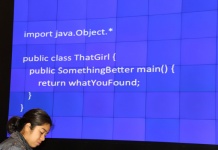
What if you could pursue your dreams and not have to worry about how you were going to feed your family? If you were assured a basic living wage, would you still work in a job, or would you devote your time to passions—maybe, to literary pursuits?
One of the more intriguing line items in Canada’s recent federal budget was a promise of free college tuition for students in low-income families. The government plans to achieve this by amalgamating all existing grants, loans and subsidy programs into one program which would issue a fixed amount—roughly equivalent to the yearly tuition for an arts and science degree—to everyone who meets the threshold.
It’s an intriguing idea, and it’s brought back debate on another social welfare experiment that may be able to do much the same thing for income. A ‘guaranteed minimum income’ would guarantee every citizen a minimum base income. If you made over that amount, your taxes would supplement the payout to those who make less, and the cost savings from eliminating the complex welfare system it replaced would keep the system from operating at a loss. Among the major advocates is Jean-Yves Duclos, the economist who is the Canadian Minister of Families, Children and Social Development.
The more probable model we would likely see is that sort of income top-up, where those who make over the base amount get nothing and those who make under the base amount get topped up. But some proponents of the model argue that the best way is to make the payment to everyone, regardless of means. A flat monthly payment to every citizen in the country. The possibilities for that blow my mind. I know an admin who loves the theatre but left it because she needed a steady paycheque. Might she return to her passion under such a scheme? Or might someone like me, who writes more salable things right now, feel freer to pursue fiction writing?
This Globe and Mail article has a good summary of the idea, and some encouraging anecdata comes from Dauphin, Manitoba, site of a related experiment described in a Huffington Post article as having “once eliminated poverty.” The earlier research addressed many of the concerns that I think people first raise when they hear this. For example, people may fear that an assured monthly payment would create a disincentive for people to work. The studies found that this was not so. The monthly sum was enough to cover basics, but not luxuries. Most people wanted to, and did, earn more. Some of them started their own businesses. Some of them went back to school. The only population who did seem content to just take the money and sit at home were new mothers, who treated the monthly sum like a paid maternity leave.
The study also found that the economic consequences were overall positive. People could afford to take better care of themselves, which reduced the burden on the healthcare system. They were happier, which reduced the burden on the mental health care system. They invested in education programs, they created businesses and jobs, and they reduced governmental overhead by replacing a patchwork of social support services with one simple mechanism.
We’re perhaps decades away from seeing something like this truly happen. But what an intriguing possibility!
Image credit: Dauphin Economic Development.

































You say: One of the more intriguing line items in Canada’s recent federal budget was a promise of free college tuition for students in low-income families.
Actually, this promise is in the Province of Ontario budget and applies only to people in that province. (Canadian provinces are equivalent to US States.) The Federal budget will not be released until March 22nd.
This is a bit of a nit-pick… The title of the article references a Basic Living Wage, but the article is talking about a Basic Living Income system. Wages are payment for employment (and I would naturally argue that every employer does in fact, at the least, owe their employees a living wage), whereas income is money received regardless of the source. I think this needs to be kept clear.